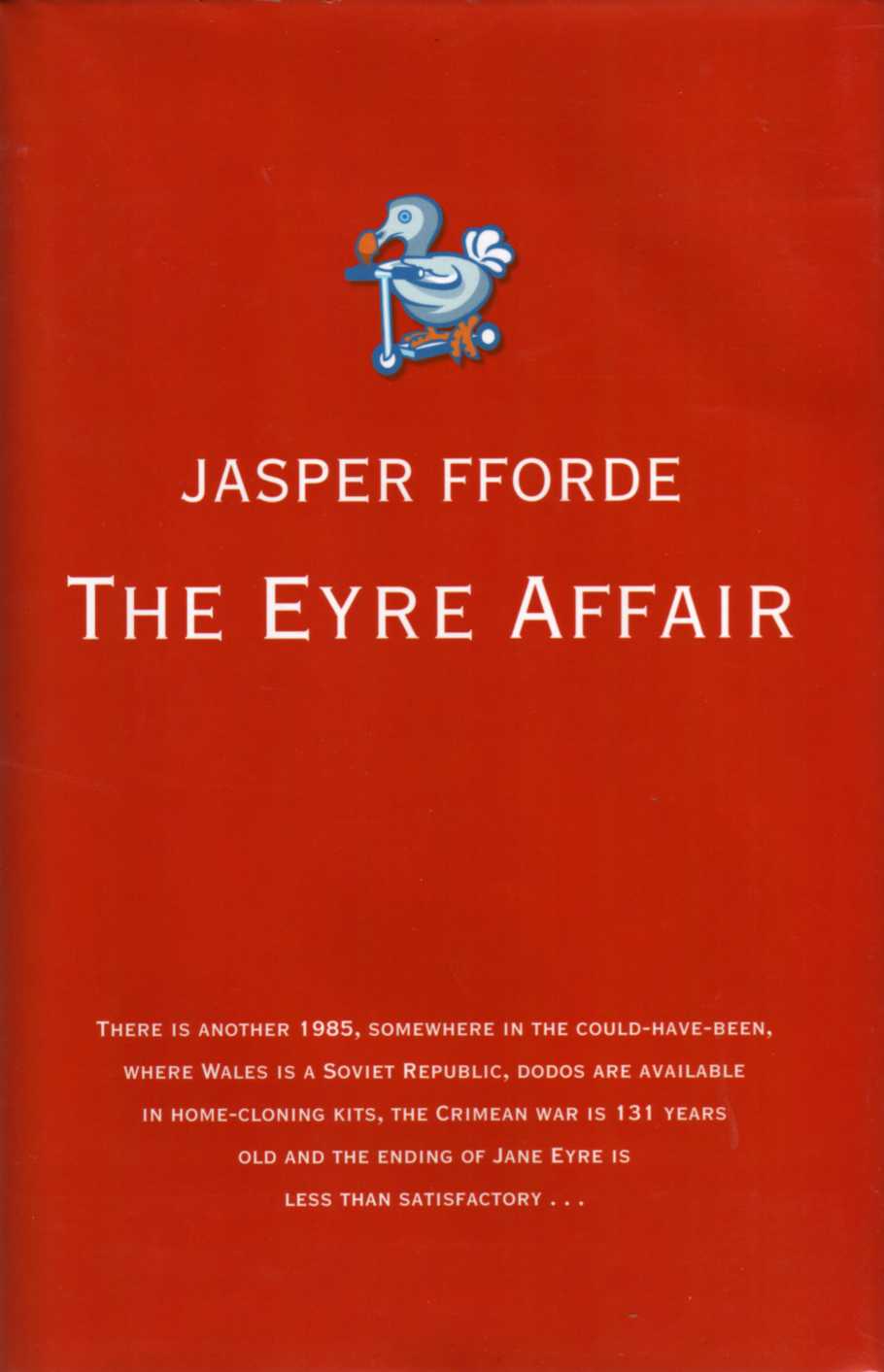
(Photo courtesy of Hodder and Stoughton)
With all the homework I have to do and my various extracurricular commitments, not to mention any social life I might have, I hardly ever get time for truly remorseless reading. There’s always something else I should be doing, somewhere else I have to be or some reading that’s actually required for class. There seems to be a sort of guilt-tinged cloud over my head while I read, especially when the material isn’t particularly intellectual.
So when I find a book captivating enough to make me forget my commitments and smart enough to banish any doubts I have about its content, it’s a good day. Jasper Fforde’s “The Eyre Affair” fulfilled all these requirements and more.
Fforde’s book features a whimsical blend of wacky humor and literary references combined with a juicy mystery and a little bit of fantasy. The protagonist, Thursday Next, has an interesting job description: She’s a Literary Detective, charged with protecting books and their characters, a difficult job in an England where performances of “Richard III” have replaced Rocky Horror, Shakespeare Machines stand on corners to give you your daily quotation, and altering a book’s manuscript changes all of the printed copies as well.
When characters start disappearing from classic novels, Thursday is assigned to the case. The crimes seem to be the work of a minor offender — until the original “Jane Eyre” is stolen from its high-security museum home. This theft hits Thursday hard: Jane Eyre means a lot to her, and in more than just a comfort-read sort of way. Thursday vows to find the culprit, even though solving this case might mean consenting to some compromises she’s not too willing to make.
“The Eyre Affair” is a book that’s impossible to summarize entirely. Even the most basic elements require explanation. Setting: alternate-universe England circa 1985. Main character: Nancy Drew grown up. Sort of. With a pet Dodo. But it’s these layers of complexity that make it worthwhile.
Fforde drops you headfirst into his crazy world and expects you to swim among a barrage of literary and mythological references and new social norms, but his jaunty prose and witty dialogue make you, as the reader, happy to rise to the challenge. Reading a book can seem a lazy activity, but Fforde so engages every bit of your brain that it’s impossible to feel guilty.
Literary allusions pepper the entire plot, from character names to pop culture references to the government. And just when you think you’ve got the hang of Thursday’s world, Fforde introduces another ridiculous plot element, but in such a way that you accept it without question.
“The Eyre Affair” requires you to suspend belief and promises a good story if you can manage it. It’s rare to find a book so simultaneously hilarious, well-written, and intellectually rewarding. Sometimes a book only offers one reason for you to keep reading; in “The Eyre Affair,” there are too many reasons to count.
